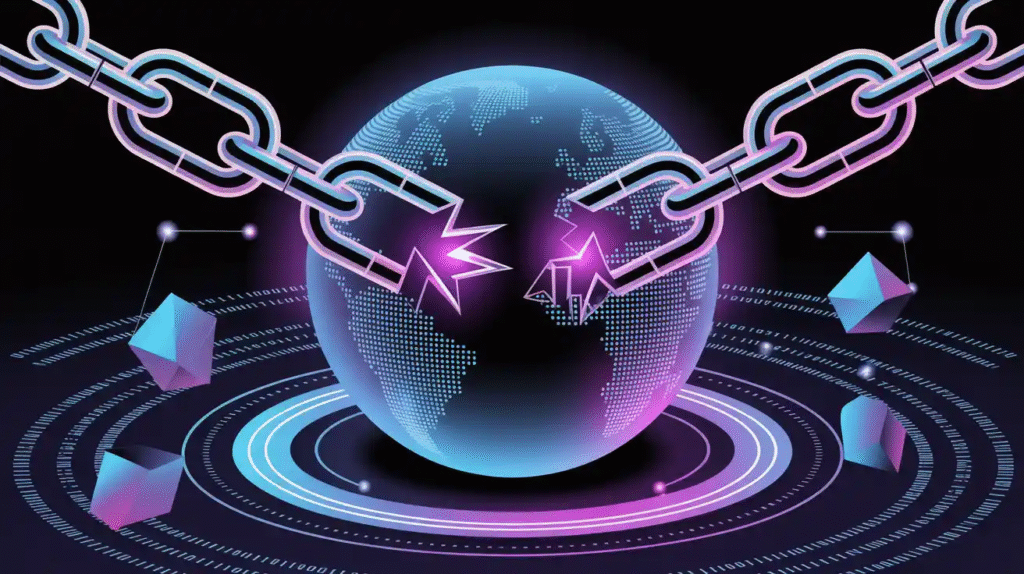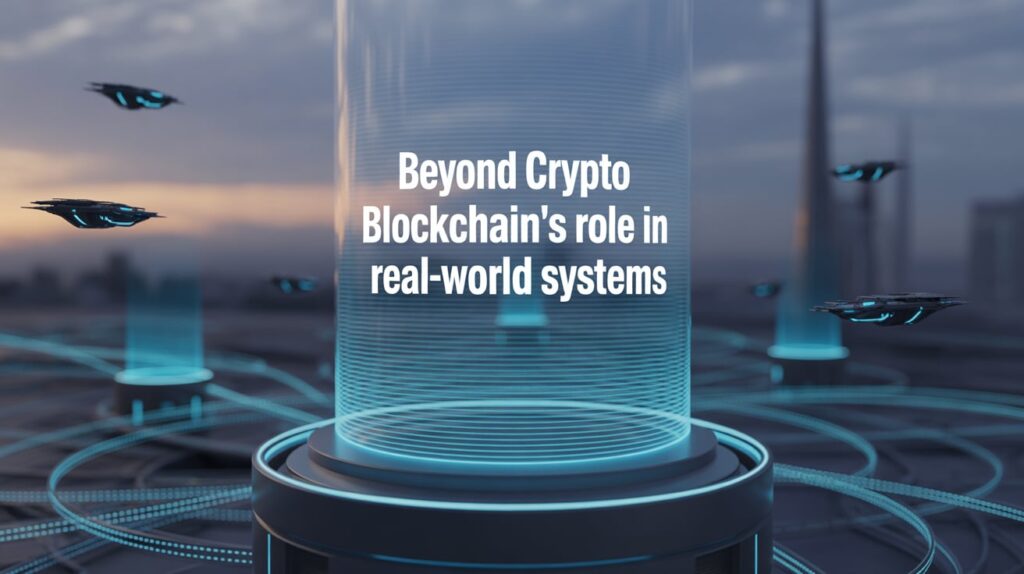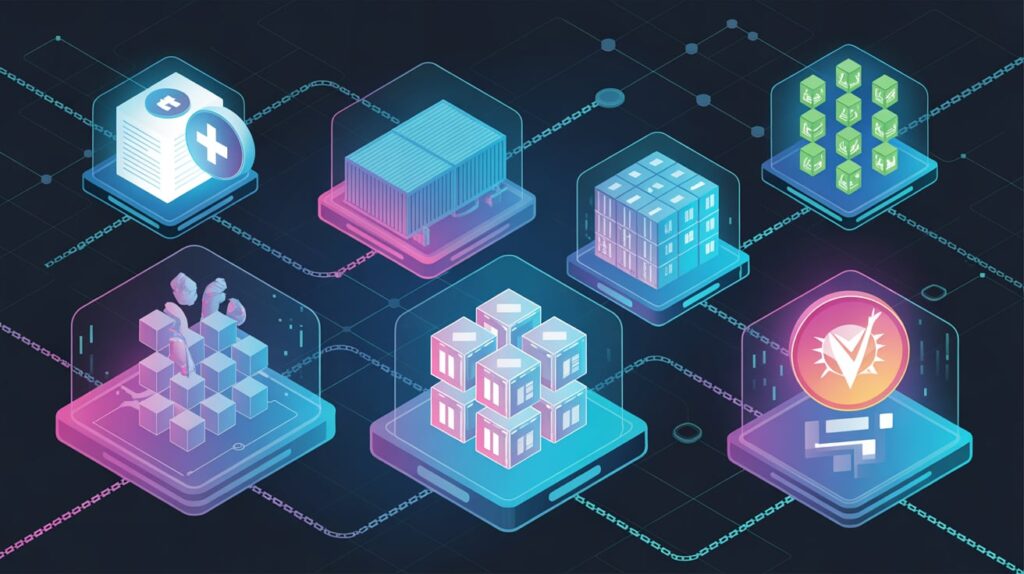The advent of Decentralization & Blockchain has changed the way we perceive the concepts of trust, ownership and collaboration. What began as a experiment with digital money has turned into a world wide trend that is redefining industries, societies and even the basis of our economic and social systems.
In its essence, blockchain is not just another form of technology, it is an ideology based on fairness, transparency, and collective responsibility. Decentralized networks allow individuals and organizations to communicate without further engagement with intermediaries, resulting in trustless systems and less corruption, inefficiency, and reliance on centralized power.
It is also freeing up the old-fashioned method of doing things and replacing them with systems that are designed to be inclusive and innovative, and that is what the blockchain technology is doing not only to redefine the future of finance but also to usher in digital transformation in all industries. This blog will discuss the ways that the process of decentralization is transforming our world, why this is important and the direction that it is taking us.
The Foundation of Decentralization & Blockchain
What is Blockchain Technology?
Blockchain technology is a decentralized registry that documents transactions in a protected and transparent and irrevocable manner. A block is added to each transaction and it is connected to the previous transactions and distributed among the network members. Since the ledger is decentralized, allowing it to be spread among people instead of being stored in one place, it is more secure and accountable.
The technology does not require the middlemen in any industry, thus providing people with direct access to their assets and information. Blockchain builds a sense of trust into the system by using cryptography and transparency, which provides a digital environment where trust is inherent.
The Power of Decentralized Networks
The main principle of Decentralization & Blockchain is the idea of decentralized networks. In contrast to conventional central systems, in which power is held by the governments, banks, or corporations, decentralized networks spread the power equally to all the participants.
With this structure, there are minimal single points of failure, and this makes the system more resilient and democratic. The system is decentralized and no single one is in charge of the whole network, and therefore, users are freer, their personal data is better preserved, and collaboration across borders is enhanced.
How Trustless Systems Transform Trust
Old systems place a lot of confidence in banks to keep the money safe, the governments to control the money justly, the corporations to keep the personal information safe. Blockchain-driven trustless systems eliminate this blind faith.
Participants are able to authenticate transaction themselves through transparent algorithms and consensus mechanisms. The source of trust instead of the human institutions is the system itself. This change is radical, since it minimizes fraud, corruption and manipulation, as well as, it provides a more level playing field to everyone.
The Role of Decentralization in the Future of Finance
Redefining Money and Value
Finance is one of the most evident effects of Decentralization and the Blockchain. Bitcoin and Ethereum are cryptocurrencies that are redefining the meaning of money in a digital period. People no longer need banks and governments but have access to digital assets that are accessible anywhere in the world, borderless, and free of traditional financial systems.
This change does not only destabilize the financial institutions, but also gives power to people, particularly in areas whereby access to banking has been poor. Blockchain opens up new prospects of wealth generation, investment, and p2p transactions.
Decentralized Finance as a Game Changer
One of the most rapidly expanding industries in the blockchain is Decentralized Finance (DeFi). It provides banking services such as lending, borrowing and exchange of services without banks or brokers through smart contracts and decentralized networks. DeFi platforms can allow any person with an internet connection to use financial solutions previously only available to large institutions.
The opportunities of DeFi are enormous. It reduces the cost, promotes transparency, and brings financial systems closer to a significantly wider audience by eliminating mediators. That is why blockchain is regarded as the key to financial future.
Building Inclusive Global Economies
Decentralization is also conducive in backing the establishment of more inclusive economies. Billions of individuals are unbanked or underbanked in the world. Blockchain gives them instruments of financial engagement, authorization of identity and secure dealings.
Not only is this inclusivity a way of empowering the person on the personal level, but it is also what leads to the growth of the world economically. Blockchain technology is also establishing the base of a more equitable and globalized financial system by linking people across borders without any restrictions.
Beyond Money Blockchain in Digital Transformation
Blockchain in Supply Chains and Logistics
Digital transformation is not just a finance topic, and blockchain is the epicenter thereof. Among the applications is in supply chains. Through blockchain, businesses will be able to trace the products back to source up to the destination in total transparency.
Food companies, as an example, are able to track the farms to grocery shelves and thus keep track of the safety and quality of the ingredients. Such a high degree of responsibility aids in the eradication of frauds, minimization of wastes, and consumer confidence. Blockchain establishes smarter, fast, and ethical supply chains.
The Role of Blockchain in Healthcare
The other industry that is being digitally transformed using blockchain is healthcare. Stored medical records on blockchain can be safe, can be accessed only by authorized persons, and cannot be tampered with. This will guarantee patient privacy and will make it easier to share critical information by the healthcare providers.
Another application of blockchain is to inspire the building of trust in drug supply chains and guarantee authenticity of drugs and reduce counterfeit goods. The transparency is improved to the benefit of patients and the healthcare system also becomes more reliable and efficient.
Creative Industries and Intellectual Property
Decentralization and Blockchain are also beneficial to artists, musicians, and writers. Getting creators to create an entry on blockchain of ownership of digital creations enables creators to guard intellectual property rights. An example of how blockchain can help creators to directly monetize their work and bypass large corporations is non-fungible tokens (NFTs).
This is changing the landscape of creative industries because artists are being compensated well, have direct connections with their fans, and command their digital property.
Challenges and Opportunities in Decentralization & Blockchain
Barriers to Widespread Adoption
While the potential of blockchain technology is immense, adoption is not without challenges. High energy consumption, regulatory uncertainty, and technological complexity remain obstacles. Many governments are cautious about integrating decentralized systems because they challenge existing power structures.
Overcoming these barriers requires collaboration between innovators, policymakers, and communities to create frameworks that balance innovation with safety and responsibility.
The Evolution of Trustless Systems
Trustless systems are still evolving, and questions remain about scalability and security. While blockchain has reduced many risks, it is not entirely immune to attacks or errors. Future innovations must focus on strengthening the infrastructure while keeping the decentralized ethos intact.
This evolution will shape how much trust society is willing to place in code rather than institutions. The more reliable the technology becomes, the more widely it will be adopted across industries.
Opportunities for Global Digital Transformation
Despite the challenges, the opportunities are profound. Blockchain represents not just a tool but a movement toward transparency, fairness, and collaboration. It is enabling a digital transformation that spans economies, healthcare, governance, and creativity.
As more individuals and organizations adopt blockchain solutions, the collective impact will reshape societies. Decentralization empowers people, redistributes power, and creates systems where accountability is embedded into the structure itself.
Conclusion
The journey of Decentralization & Blockchain is only beginning, but its impact is already undeniable. What started as an innovation in currency has become a catalyst for global change. By enabling decentralized networks and trustless systems, blockchain technology is unchaining industries from outdated models and reshaping the future of finance and beyond.
From inclusive financial systems to transparent supply chains, from healthcare innovation to empowering creative industries, blockchain is driving a wave of digital transformation that affects every corner of society. While challenges remain, the vision of a decentralized future is clear a world where power is distributed, trust is coded into systems, and individuals are empowered like never before.
The future belongs to systems that are fair, transparent, and collaborative. With blockchain as the foundation, decentralization is not just changing our world it is redefining it.




